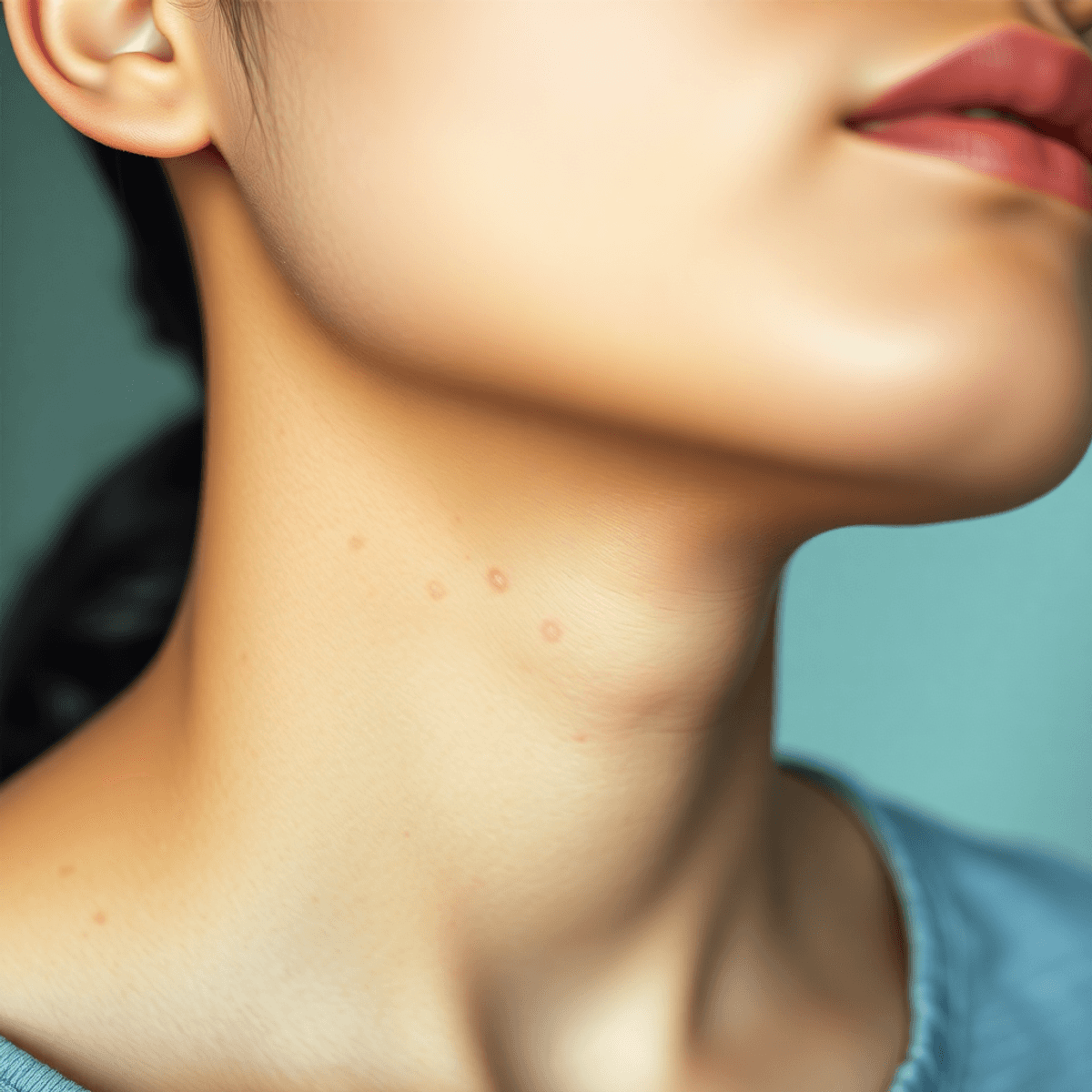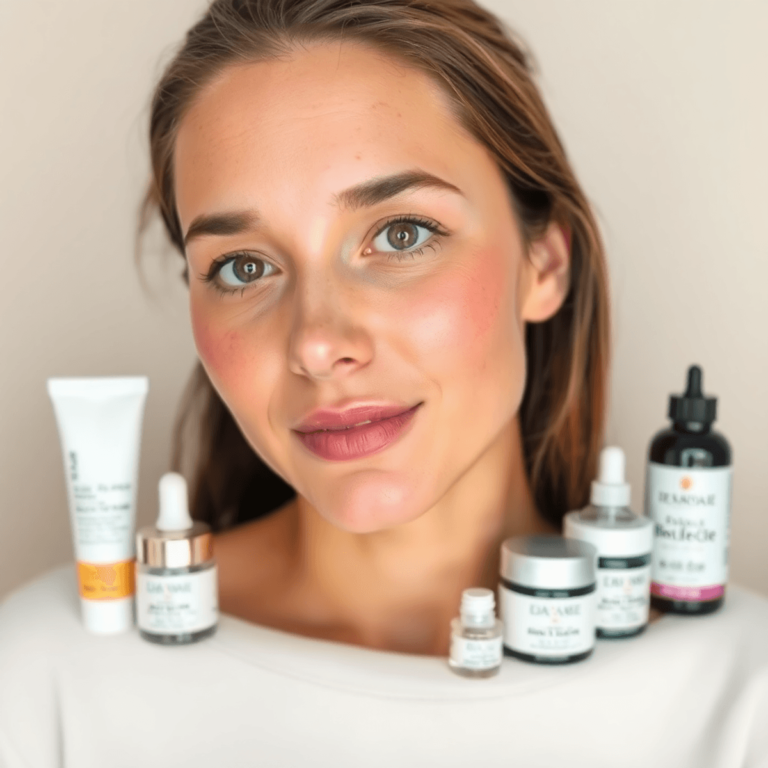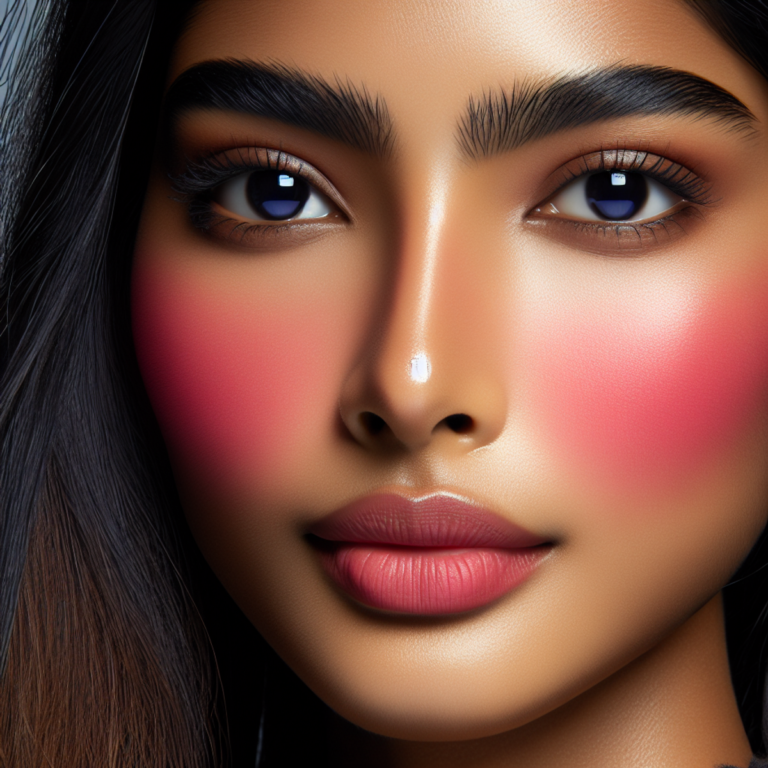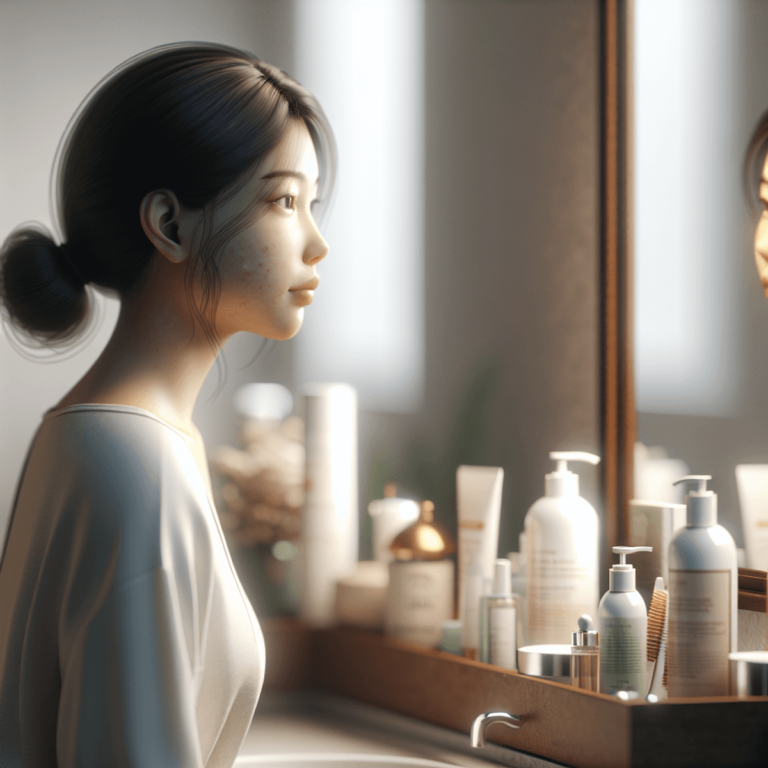How to Treat a Pimple on Your Neck

Understanding Neck Pimples
Dealing with pimples on the neck can be a frustrating experience. These blemishes often mirror facial acne in their appearance and causes. Types of pimples that might appear on your neck include:
- Papules: Small, red bumps that may feel sore.
- Pustules: Similar to papules but filled with pus, giving them a white or yellow center.
- Nodules: Large, painful lumps under the skin surface.
- Cysts: Deep, painful, pus-filled lesions.
Understanding what contributes to these breakouts is crucial for effective treatment. Common causes of neck pimples involve:
- Poor hygiene, such as infrequent washing of the neck area, leading to clogged pores.
- Hormonal fluctuations, which can increase oil production in the skin, especially during puberty or menstrual cycles.
- Stress, known to exacerbate acne by triggering hormonal changes that result in increased sebum production.
Several risk factors might make you more prone to developing acne on your neck:
- Not washing hair frequently can lead to oil and dirt transferring from hair to skin.
- Heavy makeup use, particularly products that are not non-comedogenic, can clog pores.
- Wearing tight or non-breathable clothing traps sweat and bacteria against the skin.
For those wondering “how to get rid of pimples” or “how to remove pimples overnight,” it’s essential first to identify these underlying causes. Addressing these issues forms the foundation for any effective pimple treatment at home. By understanding these factors and types of acne, you can better tailor your approach to clear your skin effectively and prevent future outbreaks.
Effective Treatment Options for Neck Acne
Developing an effective approach to treating neck acne involves understanding the need for a consistent skincare routine. This practice helps maintain neck skin health and prevents future breakouts. Here’s how you can address neck pimples effectively:
Consistent Skincare Routine
- Cleanse Twice Daily: Use a gentle, hypoallergenic cleanser to wash your neck twice a day. This helps remove dirt, oil, and impurities that contribute to acne.
- Moisturize Appropriately: Opt for non-comedogenic moisturizers that won’t clog pores and exacerbate acne.
- Exfoliate Regularly: Incorporate mild exfoliation into your routine 1-2 times a week to eliminate dead skin cells and reduce the risk of clogged pores.
Recommended Over-the-Counter Topical Treatments
For those wondering how to get rid of small bumps on the face or how to get rid of cystic pimples, over-the-counter treatments are often effective solutions:
- Benzoyl Peroxide: Known for its antibacterial properties, benzoyl peroxide helps reduce inflammation and kill acne-causing bacteria.
- Salicylic Acid: This ingredient aids in unclogging pores and reducing swelling, making it highly effective for treating both small bumps and red marks left by spots.
Exploring Natural Remedies
Natural remedies can be beneficial in treating neck acne while providing additional skin health benefits:
- Tea Tree Oil: Its natural antibacterial properties make it effective in reducing acne-related inflammation and redness. Dilute before use to prevent irritation.
- Aloe Vera: Known for its soothing properties, aloe vera can help calm irritated skin and promote healing without harsh side effects.
These treatment options offer practical solutions for managing neck acne. By adhering to a consistent skincare routine and selecting appropriate products or natural remedies, you can effectively get rid of pimples and maintain healthier skin overall.
Practical Prevention Tips to Keep Your Neck Clear
Achieving a clear neck starts with good hygiene practices. Washing your neck daily using a gentle, hypoallergenic cleanser can help prevent neck acne. For those wondering how to get rid of bumps on the face or how to stop getting pimples, consistency is key. A regular cleansing routine removes excess oil and dirt, reducing the likelihood of breakouts.
When considering how to get rid of tiny bumps on the face or how to make pimples go away, it’s essential to pay attention to your clothing choices. Opt for breathable fabrics like cotton that minimize skin irritation. Tight collars or abrasive materials can exacerbate acne, so choosing appropriate clothing is crucial.
Avoid heavy makeup use on the neck area as it can clog pores, leading to more pimples. Instead, choose non-comedogenic products designed not to block pores. If you’re dealing with how to remove dark spots caused by pimples overnight or seeking effective pimple scar removal, focus on products that promote skin healing without causing irritation.
Another aspect often overlooked in preventing neck acne is managing accessories. Necklaces and scarves can trap sweat and bacteria, contributing to skin issues. Ensure these items are clean and avoid wearing them for extended periods if you notice any irritation.
While these steps help maintain a clear neck, understanding how to treat specific types of acne can further enhance skin health. Whether you’re dealing with blind pimple treatment, seeking the best cream to remove pimple marks fast, or figuring out how to get rid of pustules, adopting preventive measures tailored to your needs is vital.
With these practical tips, not only will you learn how to get rid of neck acne effectively, but you’ll also gain insights into broader skincare concerns such as how to treat pimples, zits, and even how to manage teenage pimples efficiently.
Lifestyle Factors and Their Impact on Neck Acne
Understanding how lifestyle factors influence neck acne can be crucial in managing and reducing breakouts. Here are some key factors to consider:
Stress Management
Stress is a major cause of acne flare-ups, including those on the neck. When you’re stressed, your body produces more cortisol, a hormone that stimulates the sebaceous glands to produce excess oil. This can result in clogged pores and eventually, pimples.
To effectively manage stress:
- Practice relaxation techniques such as deep breathing exercises, meditation, or yoga.
- Ensure regular physical activity to help maintain hormonal balance and improve mood.
- Establish a consistent sleep schedule to promote overall skin health.
Hormonal Balance
Hormonal imbalances are another common factor affecting neck skin. Changes in hormone levels, particularly during puberty, menstruation, or pregnancy, can lead to increased oil production and acne development. Maintaining a balanced diet rich in nutrients can support hormonal stability.
Key dietary factors include:
- Consuming a balanced diet: Incorporate plenty of fruits, vegetables, and whole grains.
- Staying hydrated: Adequate water intake can help regulate bodily functions and support skin health.
Skincare Choices
In addition to stress and hormones, lifestyle choices such as diet and skincare routine play a role in acne management. For those wondering how to treat blackheads or how to remove pimples naturally at home, incorporating natural remedies like tea tree oil or aloe vera into your skincare regimen may provide relief. Avoiding harsh chemicals in products is also crucial.
These insights not only aid in understanding how to get rid of teenage pimples naturally at home but also emphasize the importance of addressing lifestyle habits for clearer skin. Whether you’re dealing with neck acne or seeking pimple solution options for other areas like the back or forehead, these adjustments can make a significant difference.
When to Seek Professional Help for Neck Pimples
Dealing with neck pimples can be frustrating, especially when they become persistent or severe. It’s crucial to recognize when to consult a dermatologist for neck acne. While home remedies and over-the-counter treatments can be effective for mild cases, there are situations where professional intervention is necessary.
Indicators for Seeking Professional Help:
- Persistent Breakouts: If you’ve noticed that despite maintaining a consistent skincare routine and trying various treatment options, your neck pimples continue to persist.
- Severe Acne: Cases that involve painful cysts or nodules may require medical attention. These types of acne can lead to scarring if not properly treated.
- Signs of Infection: Redness, swelling, or pus-filled lesions that do not improve with standard care should be evaluated by a healthcare professional.
Consulting a dermatologist allows you to explore advanced treatment options tailored to your specific needs and skin type.
Advanced Treatment Options:
- Prescription Medications: Dermatologists might prescribe topical or oral medications such as antibiotics, retinoids, or hormonal treatments to combat acne effectively.
- Procedures:Chemical Peels: These can help exfoliate the skin and reduce acne scars.
- Laser Therapy: Targets bacteria and reduces inflammation.
- Drainage and Extraction: A professional procedure to remove large cysts gently.
By seeking expert guidance, you not only address the current issue but also gain insights into how to prevent pimples from reoccurring in the future. Remember, while it’s tempting to search for quick fixes like “how to shrink a cystic pimple overnight” or “home remedies for pimples,” professional advice often provides the most reliable long-term solutions.
FAQs (Frequently Asked Questions)
What are the common causes of neck pimples?
Common causes of neck pimples include poor hygiene, hormonal fluctuations, and stress. Additionally, factors like hair washing frequency, makeup use, and clothing choices can contribute to the development of neck acne.
How can I effectively treat a pimple on my neck?
To treat a pimple on your neck, maintain a consistent skincare routine that includes gentle cleansing and topical treatments like benzoyl peroxide or salicylic acid. Natural remedies such as tea tree oil and aloe vera may also be beneficial.
What preventive measures can I take to avoid neck acne?
To prevent neck acne, maintain good hygiene practices, choose appropriate clothing and accessories that won’t irritate the skin, and manage stress levels. Regularly washing your hair and avoiding heavy makeup can also help.
When should I seek professional help for neck pimples?
You should consult a dermatologist if you experience persistent or severe cases of neck pimples that do not respond to over-the-counter treatments. They can provide advanced treatment options tailored to your specific needs.
What types of pimples can appear on the neck?
The types of pimples that can appear on the neck include papules, pustules, nodules, and cysts. Each type varies in size, severity, and treatment approach.
How can lifestyle factors impact the occurrence of neck acne?
Lifestyle factors such as stress levels and hormonal imbalances play a significant role in exacerbating neck acne. Managing stress through relaxation techniques and maintaining hormonal balance through a healthy diet can help reduce breakouts.










